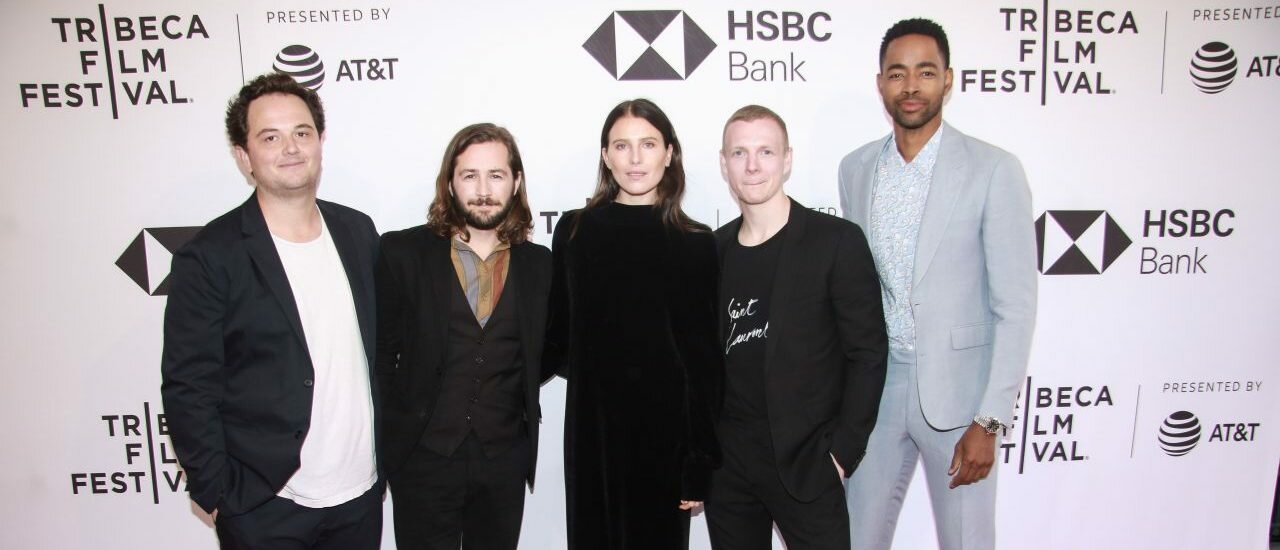Conscious Failure
by: Anthony Zangrillo
With 2009’s release of District 9, Neill Blomkamp established a style of science fiction storytelling that has been a strong presence in the rest of his filmography. His gritty sense of guerrilla futurism has allowed for an effective cinematic backdrop that he uses to examine political, social, and ethical issues raised by an increasingly technological world. Chappie is the latest chapter in Blomkamp’s exploration of these themes, returning to Johannesburg, South Africa to focus on issues of artificial intelligence and its implications for police militarization. Instead of successfully exploring these very modern social issues, Chappie leaves much to be desired for the majority of its two-hour running time.
If you’ve heard anything at all about Chappie, you’ve likely also heard of Blomkamp’s somewhat strange casting decision. Hugh Jackman has had a strange relationship with the sci-fi genre, almost exclusively starring in X-Men movies much to the disappointment of fans and critics. The same is true for Dev Patel, having played in not one sci-fi movie prior to Chappie. Even stranger is the inclusion of Ninja and Yolandi Visser from South African rave group Die Antwoord as main characters. For the most part, the acting is unsatisfying and rushed, constantly circling the intended effect on the viewer. Jackman does a solid job of playing the villain, but this is severely undermined by the uncomfortable performances by the rest of the main actors. In fact, the CGI robot Chappie managed to have more inflection in his dialogue, thanks in part to the vocal talents of Sharlto Copley from District 9, and more convincing movement than most of the main cast. During the latter half of the film, however, the action swells and the acting, particularly that of Die Antwoord, feels more appropriate and as a result the film flows smoother. It would seem that the more Die Antwoord acts on their stage personalities, raw hyper charged South African excess, the more at place they seem as part of Blomkamp’s vision.
Moving away from superficial elements of Chappie, the themes presented by Blomkamp are mostly skirted away before we are able to really understand their significance. District 9 had us sympathize with the oppressed alien race. It frustrated the viewer with wild handheld camera footage as a result of constant police brutality and the hopelessness of the protagonist’s grotesque metamorphosis. Chappie offers no such pacing and instead skips over its more pensive moments in favor of larger action scenes or cheap laughs. There are hints of gun control mentioned: Patel purchase a revolver and bullets with laughable ease, Jackman’s character carries a gun around the office and at one point even threatens Patel, and Chappie refuses to shoot a gun only to be tricked into using other weapons just as lethal. Equally present in the film are themes of religion and police brutality. Patel plays Deon Wilson, Chappie’s creator, and is constantly referred to as some sort of Frankenstein/God figure. This is a point made painfully obvious by Blomkamp: Chappie refers to him as his “maker,” the file that brings Chappie consciousness is “genesis.dat,” and Deon’s name is not too far from the latin word for God: Deus. At one point Chappie even explicitly confronts Deon with the question “why would you create me just so I could die?” The film is begging for some deeper exploration of these ideas but they are unfortunately never mentioned again, making for an overall unsatisfying viewing experience.
Fortunately, the movie starts to pick up right before its final act. We have already been denied a deep connection with Chappie and any of the other characters, but the movie stumbles upon the promising theme of consciousness right before the large climactic battle with Jackman’s hyper militarized police robot. Chappie becomes obsessed with capturing consciousness in the form of data and succeeds in doing so, allowing consciousness to be transferred as simply as moving files on a computer. The film manages to avoid a complete nose-dive by introducing this unforeseen element, but doesn’t avoid disappointment completely. The shift in tone is noticeable, and each actor is performing at arguably their full potential, so it isn’t hard to be engaged in the film. Abandoning its muddled attempt at delivering a clear message to its viewers, Chappie spends its final moments drawing out impressive action sequences with big explosives and saves its consciousness-as-data gimmick for the very end, again not fully drawn out. There’s even a subtle nod to District 9 hidden in the final scene, which, again, comes with no significance. As such, Chappie is a movie that has the ambition to be a great movie, but ultimately leaves the impression of a largely unfinished product.
It was recently announced that Blomkamp is slated to direct the next film in the Alien series, a fact that could mean a number of things. Comparable to the controversy surrounding J. J. Abram’s new Star Wars trilogy, it seems that we’ll just have to wait and see how the final product comes out. If Chappie is any indicator of Blomkamp’s new direction, it seems as if Alien fans will be leaving theaters with clenched fists.
Score: 4/10







0 Comments